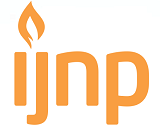Psychoeducation Strategy: Acceptance and Commitment Therapy (ACT) to Improve Self-Efficacy of Stroke Patients
DOI:
https://doi.org/10.18196/ijnp.v5i2.10818Keywords:
ACT, Psychoeducation, Rehabilitation, Stroke, Self-efficacyAbstract
Background: Stroke is the most common cerebrovascular event. Stroke patients often have biological, spiritual, and psychosocial changes. Psychosocial problems experienced in stroke patients include problems with self-efficacy. Acceptance and Commitment Therapy (ACT) is commonly used to solve psychosocial problems.
Objective: This study aims to determine the effect of ACT on the self-efficacy of stroke patients.
Methods: This study utilized quantitative and quasi-experimental designs without a control group. The study was conducted in a selected hospital rehabilitation unit in Yogyakarta. The respondents were selected via the purposive sampling technique. The self-efficacy was assessed using The Strategies Used by Patients to Promote Health (SUPPH) questionnaires and statistically tested with the Wilcoxon test. The total number of respondents of this study was 33 stroke patients. The characteristic of respondents was mostly 45 – 64 years old (72.73% ), male (57.6%) and, had a history of stroke for 1 – 6 months (39 %).
Result: Wilcoxon test results showed a computed p-value of 0.000 on the effect of ACT on stroke patients’ self-efficacy; thus, the null hypothesis was rejected. In other words, ACT proves its effectiveness in improving stroke patients’ self-efficacy.
Conclusion: Based on the data, this research can be concluded that ACT effectively improved the self-efficacy of stroke patients. The researchers recommend utilizing ACT as a nursing intervention for stroke patients in the hospital rehabilitation unit.
References
American Heart Association. (2015). Health Care Research : Coronary Heart Disease.
Amoako, Y. A., Laryea, D. O., Bedu-Addo, G., Andoh, H., & Awuku, Y. A. (2014). Clinical and demographic characteristics of chronic kidney disease patients in a tertiary facility in Ghana. Pan African Medical Journal, 18, 274.
https://doi.org/10.11604/pamj.2014.18.274.4192
Bourin, M. (2018). Post-stroke depression and changes in behavior and personality. Arch Depress Anxiety, 4, 031–033.
https://doi.org/10.17352/2455-5460.000031
Buckworth, J. (2017). Enhanching Your Behavioral : Promoting Self-Efficacy for Healthy Behaviors. ACSM’s Health & Fitness Journal, October, 40–42.
Chin, F., & Hayes, S. C. (2017). Acceptance and commitment therapy and the cognitive behavioral tradition: Assumptions, model, methods, and outcomes. In The Science of Cognitive Behavioral Therapy. Elsevier Inc.
https://doi.org/10.1016/B978-0-12-803457-6.00007-6
Davis, P., & Maujean, A. (2013). The Relationship between Self-Efficacy and Well-Being in Stroke Survivors. International Journal of Physical Medicine & Rehabilitation, 04(07), 1–10.
https://doi.org/10.4172/2329-9096.1000159
Dindo, L., Van Liew, J. R., & Arch, J. J. (2017). Acceptance and Commitment Therapy: A Transdiagnostic Behavioral Intervention for Mental Health and Medical Conditions. Neurotherapeutics, 14(3), 546–553.
https://doi.org/10.1007/s13311-017-0521-3
Elita, Y., Sholihah, A., & Sahiel, S. (2017). Acceptance and Commitment Therapy (ACT) Bagi Penderita Gangguan Stress Pasca Bencana. Jurnal Konseling Dan Pendidikan, 5(2), 97.
https://doi.org/10.29210/117800
Fung, K. (2015). Acceptance and Commitment Therapy: WesterN adoption of Buddhist tenets? Transcultural Psychiatry, 52(4), 561–576.
https://doi.org/10.1177/1363461514537544
Hasheminasab, M., Kheiroddin, J. B., Aliloo, M. M., & Fakhari, A. (2015). Acceptance and commitment therapy (ACT) for generalized anxiety disorder. Iranian Journal of Public Health, 44(5), 718–719.
Hayes, S. C., Levin, M. E., Plumb-vilardaga, J., & Villatte, J. L. (2013). NIH Public Access. 44(2), 180–198.
https://doi.org/10.1016/j.beth.2009.08.002
Heydari, M., Masafi, S., Jafari, M., Saadat, S. H., & Shahyad, S. (2018). Effectiveness of acceptance and commitment therapy on anxiety and depression of razi psychiatric center staff. Open Access Macedonian Journal of Medical Sciences, 6(2), 410–415.
https://doi.org/10.3889/OAMJMS.2018.064
Hoffmann, D., Rask, C. U., & Frostholm, L. (2019). Acceptance and Commitment Therapy for Health Anxiety. In The Clinician’s Guide to Treating Health Anxiety. Elsevier Inc.
https://doi.org/10.1016/b978-0-12-811806-1.00007-x
Ismoyowati, T. W. (2018). Pengaruh Acceptance and Commitment Therapy Terhadap Perubahan Kecemasan Dan Selfefficacy Pada Pasien Dengan Hemodialisa Di Rs Sint Carolus Jakarta. Jurnal Kesehatan, 5(2), 44–58.
https://doi.org/10.35913/jk.v5i2.95
Khashouei, M. M., Ghorbani, M., & Tabatabaei, F. (2016). The Effectiveness of Acceptance and Commitment Therapy (ACT) on Self-Efficacy, Perceived Stress and Resiliency in Type II Diabetes Patients. Global Journal of Health Science, 9(5), 18.
https://doi.org/10.5539/gjhs.v9n5p18
Korpershoek, C., van der Bijl, J., & Hafsteinsdóttir, T. B. (2011). Self-efficacy and its influence on recovery of patients with stroke: A systematic review. Journal of Advanced Nursing, 67(9), 1876–1894.
https://doi.org/10.1111/j.1365-2648.2011.05659.x
Krishnamurthi, R. V., Ikeda, T., & Feigin, V. L. (2020). Global, Regional and Country-Specific Burden of Ischaemic Stroke, Intracerebral Haemorrhage and Subarachnoid Haemorrhage: A Systematic Analysis of the Global Burden of Disease Study 2017. Neuroepidemiology, 54(2), 171–179.
https://doi.org/10.1159/000506396
Larmar, S., Wiatrowski, S., & Lewis-Driver, S. (2014). Acceptance & Commitment Therapy: An Overview of Techniques and Applications. Journal of Service Science and Management, 07(03), 216–221.
https://doi.org/10.4236/jssm.2014.73019
Lee, D., & Young, S. J. (2018). Investigating the e ff ects of behavioral change , social support , and self- e ffi cacy in physical activity in a collectivistic culture : Application of Stages of Motivational Readiness for Change in Korean young adults. Preventive Medicine Reports, 10(February), 204–209.
https://doi.org/10.1016/j.pmedr.2018.03.001
Lillis, J., & Kendra, K. E. (2014). Acceptance and commitment therapy for weight control: Model, evidence, and future directions. Journal of Contextual Behavioral Science, 3(1), 1–7.
https://doi.org/10.1016/j.jcbs.2013.11.005
Maghsoudi, Z., Razavi, Z., Razavi, M., & Javadi, M. (2019). Efficacy of acceptance and commitment therapy for emotional distress in the elderly with type 2 diabetes: A randomized controlled trial. Diabetes, Metabolic Syndrome and Obesity: Targets and Therapy, 12, 2137–2143.
https://doi.org/10.2147/DMSO.S221245
Maria, A., Sujianto, U., & Kusumaningrum, N. S. D. (2020). The Effects of Acceptance and Commitment Therapy (ACT) on Depression in TB-HIV Co-infection Patients. Jurnal Ners, 15(1), 66.
https://doi.org/10.20473/jn.v15i1.17793
Ministry of Health of Republic of Indonesia. (2018). Laporan Riskesdas 2018. Journal of Chemical Information and Modeling, 53(9), 181–222.
https://doi.org/10.1017/CBO9781107415324.004
Mohabbat-Bahar, S., Maleki-Rizi, F., Akbari, M. E., & Moradi-Joo, M. (2015). Effectiveness of group training based on acceptance and commitment therapy on anxiety and depression of women with breast cancer. Iranian Journal of Cancer Prevention, 8(2), 71–76.
Rambe, A. S. (2006). Stroke: Sekilas Tentang Definisi, Penyebab, Efek, dan Faktor Risiko. Majalah Kedokteran Nusantara, 10(2), 195–198.
Ruiz, F. J. (2010). Book Review: Acceptance and Commitment Therapy. International Journal of Psychological Therapy, 10(1), 125–162.
https://doi.org/10.1080/028457199439937
Saedy, M., Kooshki, S., Firouzabadi, M. J., Emamipour, S., & Rezaei Ardani, A. (2015). Effectiveness of acceptance-commitment therapy on anxiety and depression among patients on methadone treatment: A pilot study. Iranian Journal of Psychiatry and Behavioral Sciences, 9(1), 1–7.
https://doi.org/10.5812/ijpbs.222
Safruddin, Asfar, A., & Rusniyanti, D. (2018). Faktor Yang Berhubungan Dengan Fungsi Kognitif Penderita Stroke Non Hemoragik Di Rumah Sakit Umum Daerah Kota Makassar Tahun 2018. Jurnal Ilmiah Kesehatan Pencerah, 7(2), 132–141.
Salari, N., Khazaie, H., Hosseinian-Far, A., Khaledi-Paveh, B., Ghasemi, H., Mohammadi, M., & Shohaimi, S. (2020). The effect of acceptance and commitment therapy on insomnia and sleep quality: A systematic review. BMC Neurology, 20(1).
https://doi.org/10.1186/s12883-020-01883-1
Saverinus Suhardin, Kusnanto, & Krisnana, I. (2016). ACCEPTANCE AND COMMITMENT THERAPY ( ACT ) MENINGKATKAN KUALITAS HIDUP PASIEN KANKER ( Acceptance and Commitment Therapy Improve the Quality of Life Patients Suffering Cancer ) Saverinus Suhardin *, Kusnanto *, Ilya Krisnana * Program Studi Pendidikan Ners. Jurnal Ners, 11(1), 1–10.
Sianturi, R., Anna Keliat, B., & Yulia Wardani, I. (2018). The effectiveness of acceptance and commitment therapy on anxiety in clients with stroke. Enfermeria Clinica, 28, 94–97.
https://doi.org/10.1016/S1130-8621(18)30045-7
Snyder, K., Lambert, J., & Twohig, M. P. (2011). Defusion: A Behavior-Analytic Strategy for Addressing Private Events. Behavior Analysis in Practice, 4(2), 4–13.
https://doi.org/10.1007/bf03391779
Stone, J., Townend, E., Kwan, J., Haga, K., Dennis, M. S., & Sharpe, M. (2004). Personality change after stroke: Some preliminary observations. Journal of Neurology, Neurosurgery and Psychiatry, 75(12), 1708–1713.
https://doi.org/10.1136/jnnp.2004.037887
Torrisi, M., De Cola, M. C., Buda, A., Carioti, L., Scaltrito, M. V., Bramanti, P., Manuli, A., De Luca, R., & Calabrò, R. S. (2018). Self-Efficacy, Poststroke Depression, and Rehabilitation Outcomes: Is There a Correlation? Journal of Stroke and Cerebrovascular Diseases, 27(11), 3208–3211.
https://doi.org/10.1016/j.jstrokecerebrovasdis.2018.07.021
West, R., Hill, K., Hewison, J., Knapp, P., & House, A. (2010). Psychological disorders after stroke are an important influence on functional outcomes: A prospective cohort study. Stroke, 41(8), 1723–1727.
https://doi.org/10.1161/STROKEAHA.110.583351
Widuri, E. (2012). Pengaruh Terapi Penerimaan dan Komitmen (Acceptance and Commitment Therapy/ACT) terhadap Respon Ketidakberdayaan Klien Gagal Ginjal Kronik di RSUP Fatmawati. Universitas Indonesia.
Williams, B. W., Kessler, H. A., & WIlliams, M. V. (2008). Functional Mentoring : A Practical Approach With. 28(3), 157–164.
World Health Organization. (2019). World Stroke Day 2019.
https://www.who.int/southeastasia/news/speeches/detail/world-stroke-day-2019
Yıldız, E. (2020). The effects of acceptance and commitment therapy on lifestyle and behavioral changes: A systematic review of randomized controlled trials. Perspectives in Psychiatric Care, 56(3), 657–690.
https://doi.org/10.1111/ppc.12482
Zhang, C. Q., Leeming, E., Smith, P., Chung, P. K., Hagger, M. S., & Hayes, S. C. (2018). Acceptance and commitment therapy for health behavior change: A contextually-driven approach. Frontiers in Psychology, 8(JAN), 1–6.
Downloads
Additional Files
- Author Statement
- Psychoeducation Strategy: Acceptance and Commitment Therapy (ACT) to Improve Self-Efficacy of Stroke Patients Towards High Quality Indonesian Human Resources
- Psychoeducation Strategy: Acceptance and Commitment Therapy (ACT) to Improve Self-Efficacy of Stroke Patients Towards High Quality Indonesian Human Resources
Published
Issue
Section
License
License
Articles published in the IJNP (Indonesian Journal of Nursing Practices) are licensed under a Attribution 4.0 International (CC BY 4.0) license. You are free to:
- Share — copy and redistribute the material in any medium or format.
- Adapt — remix, transform, and build upon the material for any purpose, even commercially.
This license is acceptable for Free Cultural Works. The licensor cannot revoke these freedoms as long as you follow the license terms. Under the following terms:
Attribution — You must give appropriate credit, provide a link to the license, and indicate if changes were made. You may do so in any reasonable manner, but not in any way that suggests the licensor endorses you or your use.
- No additional restrictions — You may not apply legal terms or technological measures that legally restrict others from doing anything the license permits.
Copyright
Authors who publish with IJNP (Indonesian Journal of Nursing Practices) agree to the following terms:
- Authors retain copyright and grant IJNP (Indonesian Journal of Nursing Practices) the right of first publication with the work simultaneously licensed under an Attribution 4.0 International (CC BY 4.0) that allows others to remix, adapt and build upon the work with an acknowledgment of the work's authorship and of the initial publication in IJNP (Indonesian Journal of Nursing Practices).
- Authors are permitted to copy and redistribute the journal's published version of the work (e.g., post it to an institutional repository or publish it in a book), with an acknowledgment of its initial publication in IJNP (Indonesian Journal of Nursing Practices).














